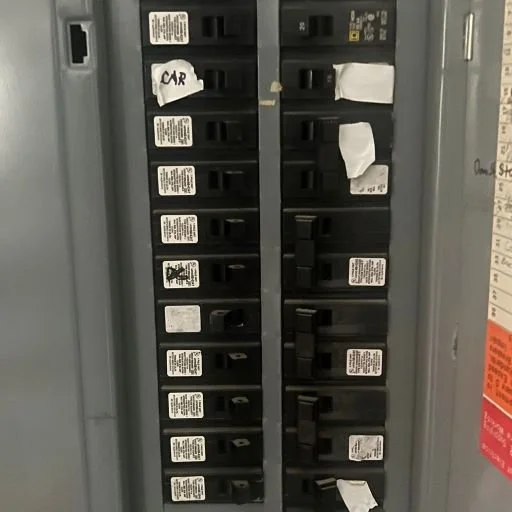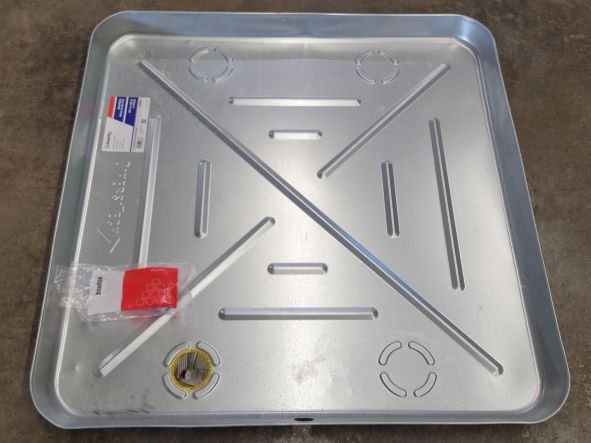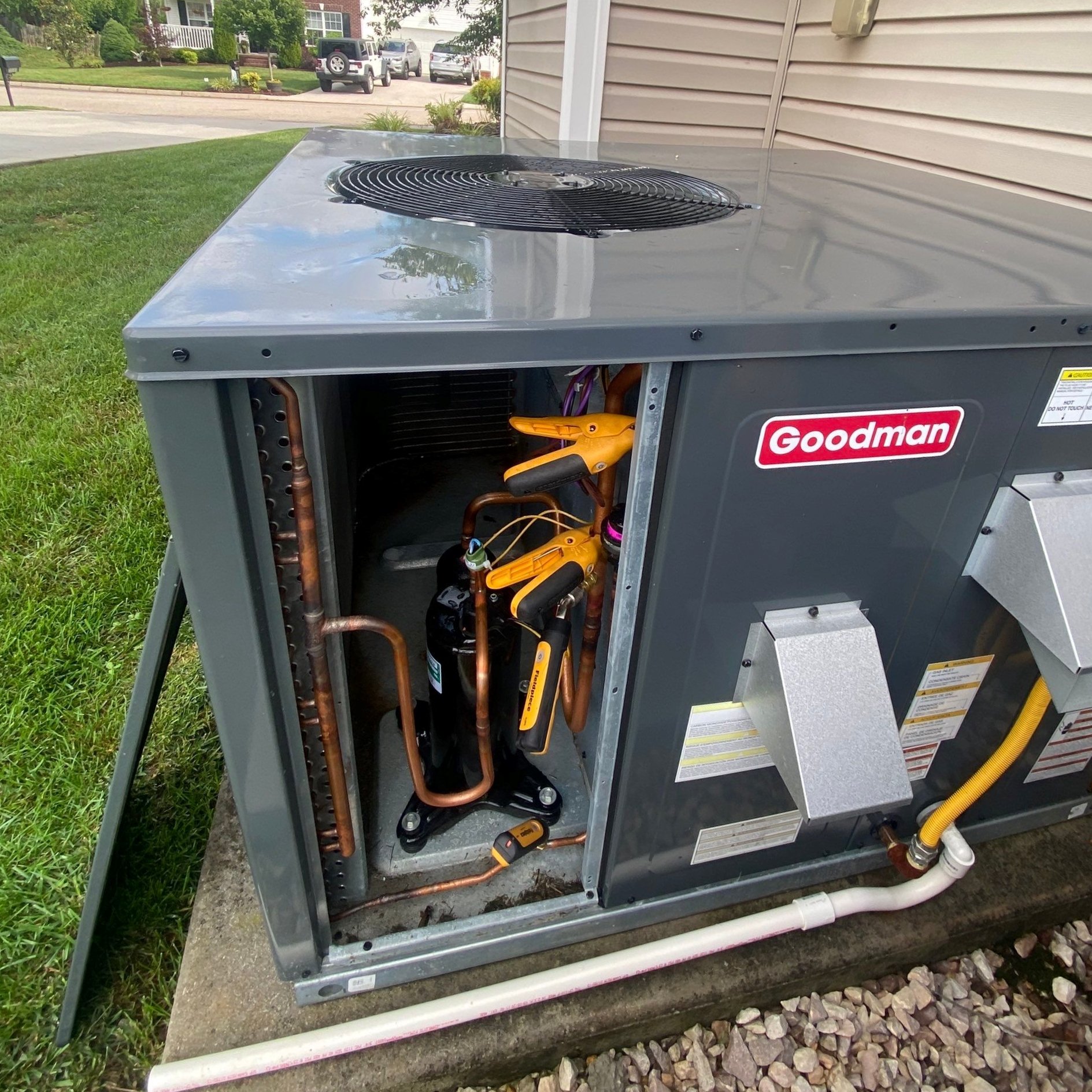Air Conditioning Will Not Turn On? Here's What to Check First
When your air conditioning will not turn on, it can be frustrating—especially on a hot day. From thermostat settings to power supply problems, a range of issues can prevent your AC unit from delivering the cool air you expect. This guide will walk you through common causes and what you can do before calling a professional HVAC technician.
If your air conditioning will not turn on, check these common issues before calling a professional:
Thermostat settings – Ensure it's set to cooling mode and the desired temperature is lower than the current room temperature.
Power supply problems – Look for a tripped circuit breaker, blown fuse, or shutoff switch that may have cut power to the unit.
Dirty or clogged air filter – A clogged air filter can restrict airflow and trigger system shutdown.
Drain line issues – A backed-up condensate drain line or full drain pan can activate a float switch and prevent operation.
Outdoor or indoor unit problems – A faulty capacitor, fan motor, or refrigerant leak may require inspection by an HVAC professional.
Electrical issues – Check for signs of faulty wiring, power surges, or an overloaded electrical panel.
This blog will guide you through these troubleshooting steps to help restore cool air and prevent further system damage.
AC Unit: First Things to Inspect
Start by checking if your ac unit is receiving power. Look for a blown fuse, tripped circuit breaker, or a flipped indoor shutoff switch. If you recently had a storm or power surge, your surge protector might have triggered and cut power to your outdoor unit or inside unit.
Also, make sure the ac switch near the condenser unit hasn't been turned off by mistake.
Air Conditioner or Thermostat Problem?
Double-check your thermostat settings. Dead batteries or incorrect programming may prevent your air conditioner from turning on. Set the thermostat to cooling mode, then lower the desired temperature below the current room temperature.
Still nothing? It might be time to inspect the HVAC system itself.
Air Filter: The Silent System Blocker
A clogged air filter or dirty air filter can restrict airflow, causing your ac system to shut down. This is especially true in central air systems where proper airflow is critical for safe operation.
Change the air filter regularly as part of your routine maintenance to prevent more serious air conditioning issues.
Circuit Breaker or Electrical Panel Issues
Check your home's electrical panel for any tripped circuit breakers or blown fuses. The air conditioning unit may share a circuit with other heavy appliances. Running too many appliances at once can overload the system, especially with a small unit.
If breakers trip repeatedly, it could indicate faulty wiring or another electrical issue in your home's electrical system.
AC Troubleshooting: Drain Lines and Safety Switches
Your drain pan and condensate drain line can also prevent startup. If the drain line is clogged, the float switch will trigger and cut power to protect against overflow.
A thorough inspection by a HVAC technician may be needed to rule out a clogged drain pipe or damaged drain pan.
AC Is Not Turning On: Deeper Component Problems
If your ac is not turning on at all, it could be due to a faulty capacitor, fan motor issue, or damaged evaporator coil. These are not DIY fixes—schedule a visit with an HVAC professional for a safe diagnosis and repair.
AC Not Turning On but Fan Runs?
When the fan operates but no cold air comes out, your system may be low on refrigerant or suffering from a refrigerant leak. Dirty condenser coils on the outside unit can also affect performance.
Left unchecked, this can lead to further damage or even full system failure.
AC Issues You Shouldn’t Ignore
If your air conditioning frequently fails to turn on, runs inconsistently, or delivers warm air instead of cool air, you may be dealing with deeper ac issues. Whether it's a metal box housing a shorted wire or damage to your entire system, delaying repairs can make things worse.
Blown Fuse or Faulty Part? Call a Professional
If you’ve ruled out basic problems and your conditioner is not turning on, your only solution might be calling a licensed HVAC specialist. They can perform a thorough inspection of your cooling system, test for power supply irregularities, and replace worn parts safely.
Frequently Asked Questions
What should I check first if my air conditioning will not turn on?
Start with your thermostat settings, electrical panel, and indoor shutoff switch. Make sure the system is set to cooling mode and the temperature is set below the current room temperature. Also check for a tripped circuit breaker or blown fuse.
Can a dirty air filter stop my AC from turning on?
Yes. A dirty or clogged air filter can restrict airflow, overheat system components, and trigger a safety shutoff. Replacing your air filter is one of the simplest and most effective steps in AC troubleshooting.
Why is my AC not turning on but the fan is running?
If the fan motor is operating but the system is not producing cool air, you might have a refrigerant leak, a problem with the evaporator coil, or condenser coils that need cleaning. These issues usually require a HVAC technician.
What electrical problems can affect my air conditioner?
Common electrical issues include power surges, faulty wiring, blown fuses, and overloaded electrical panels. A surge protector or metal box disconnect near the outside unit may also need to be reset.
How does a condensate drain line affect my AC?
A clogged condensate drain line or drain pan can cause the float switch to cut power to your indoor unit to prevent water damage. Regular cleaning and maintenance can prevent this issue.
When should I call an HVAC professional?
If you've ruled out common issues and your air conditioner still won't turn on, it’s time to contact a professional HVAC technician. Persistent ac issues, like a faulty capacitor or system that cycles on and off, need expert diagnosis to avoid further damage.





